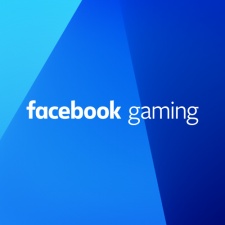Joy Marianowicz is a strategic partnerships manager at Facebook Gaming.
We were joined by Pierre-Hugues Puechlong, Ubisoft; Jens Abke, Lotum; and Michael Carter, Game Closure to discuss how they've leveraged the power of Facebook’s social discovery to build thriving communities for their games. Here’s 6 x tips we heard for building successful Instant Games.
1. Build a Deeply Social Experience
Ubisoft were driven to build Instant Games to create a user experience that is deeply social. The native social integrations on Facebook enable gaming communities to engage with each other both on and off the Instant Games platform. Building games with deep social integration leads to higher retention and virality, so ensuring your game is social is a critical first step to helping drive discovery of your games. Speaking to Lotum's experience, Jens tells us that the highest performing games they have on the platform are turn-based, which leverages the notifications feature on Facebook. The 4 Pics 1 Word puzzle game is often referenced as a best practice for game bot mechanics. Jens recommends that developers look closely at their game entry points for users and what features are in their road map, to evaluate if it has a good use case for social integrations. You can learn more about how to build social elements in solo games on our blog.
2. Test and Iterate
Jens and Pierre-Hugues attribute continuous A/B testing as a factor for building successful Instant Games. The ease of publishing updates to a sub-set of your audience, combined with the scale of Facebook's audience, make it exceptionally easy to deploy new features and receive almost instantaneous feedback from users. Both Lotum and Ubisoft utilise Facebook Analytics to monitor the performance of these tests, which informs how they iterate and improve the game.
3. Re-Engage Early and Segment Your Community to Retain Hardcore Players
At Game Closure, Michael thinks of player retention challenges in two areas; early re-engagement and long-term loyalty. Early re-engagement can be achieved by enabling organic social interactions between friends, where they can prompt each other to take action in the game via the choose.async API. Players who have a long-term affinity with your title can be equally challenging to retain, as their friends begin to churn and they struggle to find equally skilled competitors. Tournaments are an effective tool for bringing communities together, enabling players to find competitors at their level.
4. Create Quality Content
Existing players can be your biggest advocates! Building meaningful moments into your game and marking those events with shareable content is key to achieving virality. Michael states the importance of this marketing tool for Game Closure, where the team actively explores what type of content from their games will resonate in a social share. They create exciting content that will motivate players and their networks to take a high value action such as comment on a post, re-share, or tag a friend. You can implement this capability to your game with the Custom Sharing SDK.
5. Leverage Facebook Surfaces
There are many content surfaces that game developers can leverage to reach the 700M+ people who play games, watch gaming videos or engage in gaming groups on our platform. Jens recommends leveraging gaming Groups, which has been a successful community forum for Ubisoft. Pages and Groups are a great place to talk with your fans, get feedback, and see what they'd like in updates to your games.
6. Consider Multiple Monetisation Strategies
Game Closure recommends adapting your monetisation strategy by platform based on user insights, and leveraging multiple monetisation strategies on the same platform to optimise for total revenue. We see this with Facebook Gaming developers - over half apply a hybrid monetisation strategy by using a combination of in-app adverts (IAA) and in-app purchases (IAP).* In terms of ad formats, Rewarded Video, where the user chooses to watch an advert for an in-game reward, drives incremental revenue in a way that is both complementary to and also a "gateway" for more in-app purchases.
Facebook Gaming will be at Pocket Gamer Connects London. Join our session "New Ways to Optimise Your Instant Game Design" on Jan 20, 10am. Learn how you can leverage new social features on Facebook to increase your game's discoverability and engagement levels. You'll also get tips for improving the UX of your game, plus valuable insights on Instant Game users. You can also hear from Facebook Audience Network at their session "Success Factors for Mobile Game Ad Monetisation".
* Source: "Mobile Games Monetization Research" by Walnut Unlimited (commissioned by Facebook) quantitative research via 173 online interviews in US, EMEA and APAC, April 2019.






















